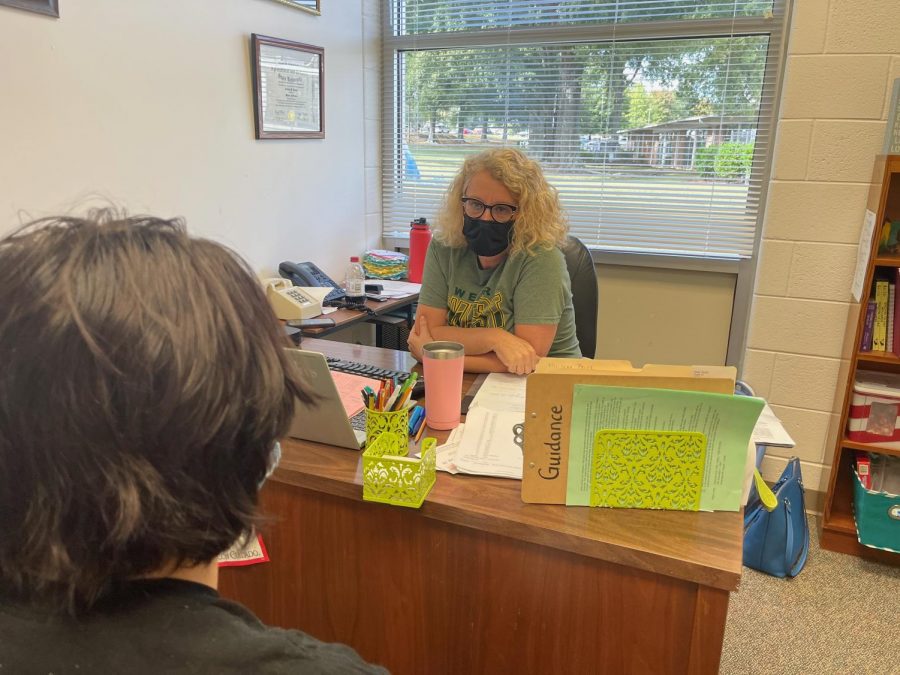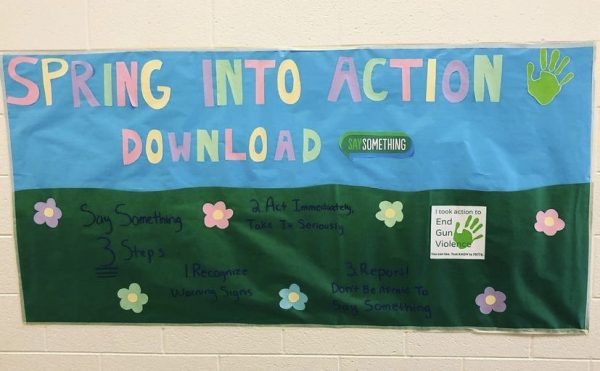How to support someone with a mental illness
Student Counselor Allison Barnes giving advice to a troubled student.
September 23, 2021
You never know what’s going on in someone’s life, nor the severity of their struggles. Your friend who is seen as the happy or outgoing person could very well be the someone who’s fighting the worst unseen battles. As a friend one of the most difficult things is trying to figure out how to help someone who is struggling mentally. With September being National Suicide Prevention month, here are some ways to comfort someone going through mental challenges.
Give them space
It may be hard to accept, but some people need to fight their battles alone. No matter how much you care about them and want to help, all you can do is let them work it out and let them know you’re there if they need you. Hovering over someone and asking if they’re okay multiple times a day can feel suffocating.
Ask questions
When someone is feeling hopeless, someone understanding them could save their life. Asking questions such as “what do you need from me?” or “is there anything you want to talk about?” can help you learn a little more about the situation and the appropriate measures that need to be taken. Questions to avoid are “what’s wrong with you?,” “do you feel better now?” or “why do you feel that way?” These questions can come off as belittling and can make someone feel as if their feelings aren’t valid. It’s always important to know the limits of the person struggling. If they are not comfortable answering a question, do not pressure them. Maybe just ask about their day.
Reaching out
Everyone faces challenges. When someone is unable to overcome it on their own, asking for help is always an option. Confiding in someone you trust can help provide alternate resources. Sometimes when you’re depressed you can’t advocate for yourself. When someone feels hopeless it’s sometimes because they feel like they’ve exhausted every resource, and being someone’s voice could help them tremendously.
Follow your gut
If you truly feel someone is in trouble, it’s always better to be safe than sorry. Someone contemplating hurting themselves will likely avoid the topic by responding with “I’m fine,” “I’m good,” or “I’m okay”. Follow your gut. If your intuition says they are not okay, do something about it, tell someone. Even if a friend has confided in you about their feelings, you should never keep secrets that would allow them to hurt themselves.
Knowing the signs
Signs of depression or suicide are extremely important to be aware of. Talking about wanting to die, withdrawing or isolating themselves, and sleeping too little or too much, can all be signs of risk of depression and suicide. You can find more warning signs at https://suicidepreventionlifeline.org/how-we-can-all-prevent-suicide/ .
It’s important to know that this is general information, and I am not a professional. If you have any reason to believe someone is going to hurt themselves it’s important to reach out to a trusted adult or visit https://suicidepreventionlifeline.org/talk-to-someone-now/ for more information on how to properly help someone in need. If someone close to you or you yourself are feeling hopeless, know you are not alone and it doesn’t make you weak to reach out for help. The National Suicide Prevention Hotline ( 1-800-273-8255) provides a 24/7 service. Even if you aren’t sure if you are considered depressed or suicidal it’s still a good idea to reach out; the hotline is welcome to anyone. If you aren’t comfortable talking on the phone, the hotline has a chat service, you fill out a quick survey and they connect you to a counselor, https://suicidepreventionlifeline.org/chat/ . You’re not alone.














